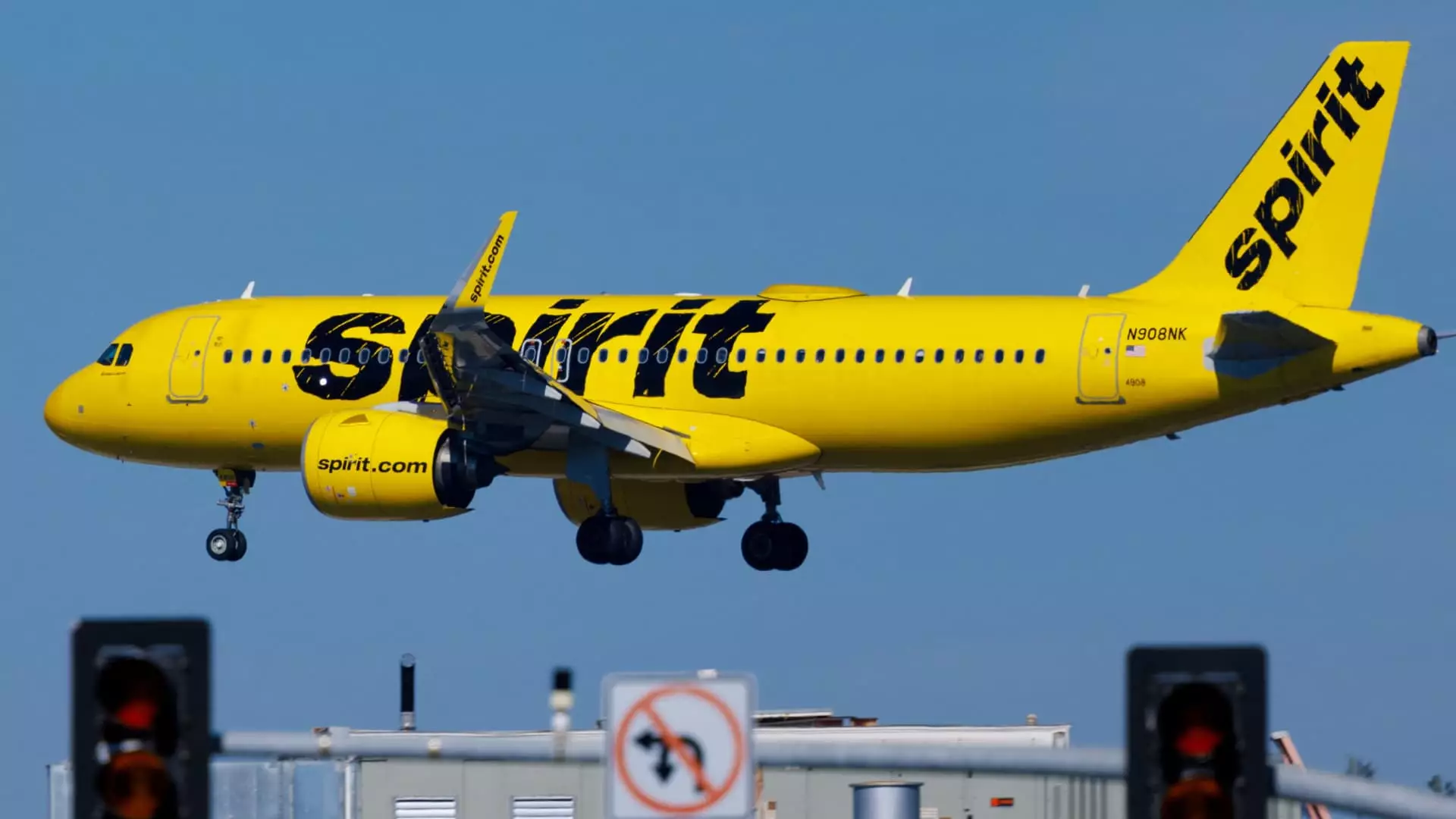The low-cost airline industry has long been defined by its no-frills approach, where the cheapest ticket often comes with a multitude of additional fees. However, Spirit Airlines, a Florida-based carrier known for its aggressive budget model, is making a significant pivot. In a bid to revitalize its brand and improve revenue amidst a challenging landscape, Spirit has announced plans to introduce new ticket packages that bundle several previously a la carte services into one enticing offering. The proposed strategy reflects a deeper understanding of how consumer preferences are shifting in the wake of the pandemic and growing competition.
Effective from August 16, Spirit Airlines will roll out four different service categories designed to appeal to diverse traveler needs. At the top of the hierarchy is the “Go Big” package, which includes a seat in Spirit’s “Big Front Seats,” traditionally reserved for upselling. This package aims to entice travelers with a bevy of additional benefits, including free Wi-Fi, a checked bag, a carry-on, and an extensive selection of complimentary snacks and beverages, alcoholic options included.
Following this premium offering is the “Go Comfy” selection, which provides standard legroom but promises extra comfort through a blocked middle seat. This option also ensures earlier boarding and includes a snack and nonalcoholic drink. The “Go Savvy” tier offers either a checked bag or a carry-on, catering to those who prioritize luggage over seating comfort. Finally, the base “Go” offering remains unchanged—providing the bare minimum of a seat at a lower price point, with all additional services charged separately.
The decision to introduce these packages appears to stem from various challenges that Spirit faces, including a blocked acquisition attempt by JetBlue, recent engine recalls, and a highly competitive domestic market where larger airlines have effectively captured the attention of cost-conscious customers. Spirit’s CEO, Ted Christie, articulated this shift, emphasizing the need to reclaim market segments that the airline had previously overlooked in its efforts to maintain a low-cost structure.
In today’s travel environment, consumers are increasingly seeking value beyond basic transportation. The introduction of multiple fare classes allows Spirit to capture both price-sensitive travelers and those willing to spend a bit more for enhanced comfort and convenience. Airlines like United have successfully tapped into this growing segment by offering bare-bones products alongside premium alternatives, suggesting a clear consumer appetite for such options. The addition of premium packages by Spirit aligns with a broader industry trend toward more differentiated offerings.
While the new offerings mark a promising strategic direction, Spirit Airlines must navigate several challenges as they implement these changes. The airline recently hinted at impending financial losses due to underperforming non-ticket revenue, which has raised concerns about potential furloughs for pilots. The financial strain brought about by these challenges underscores the importance of the newly introduced packages; they must not only resonate with customers but also succeed in driving sufficient revenue to stabilize the airline’s finances.
The airline industry is also witnessing a visible push from competitors to elevate their service offerings. Southwest Airlines recently announced a departure from its open-seating policy to introduce premium seats with more legroom, marking its most significant service overhaul in decades. Meanwhile, Frontier Airlines has begun to implement similarly appealing middle-seat enhancements. Spirit’s strategy, while currently innovative within its context, risks being overshadowed by these larger competitors unless it is effectively executed and marketed.
Spirit Airlines appears to be stepping into a transformed market landscape with its new offerings aimed at pulling from both ends of the travel spectrum. While it retains its budget-friendly ethos, the introduction of bundled packages seeks to provide added value that appeals to various consumer preferences. The ongoing evolution of airline services emphasizes the necessity for adaptability in a rapidly shifting market. For Spirit to succeed in this endeavor, it will require not only attractive offerings but also careful navigation of the operational and financial challenges that lie ahead. The outcomes of this strategic shift will likely set a precedent for the future of budget air travel in the United States.


Leave a Reply